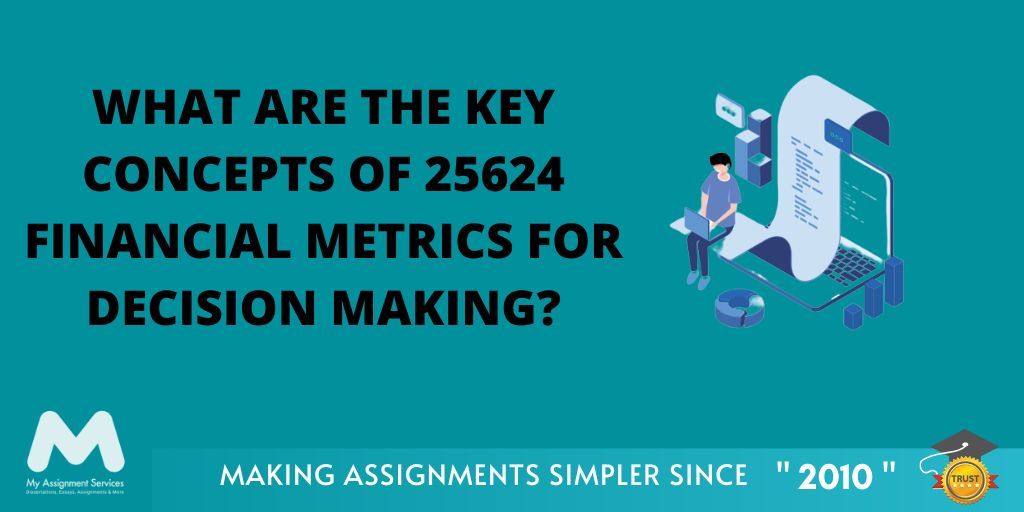The definition of metrics is that it is a tool used for quantitative analysis, measuring, assessing, tracking, and comparing performance or production levels. Generally, metrics are used to develop a dashboard for business management. Such groups are useful for reviewing a team's performance and strategising future performance goals.
The total managed fund industry rose by 86 billion Australian dollars in 2020. - ABS
Business analysts use these matrices to analyse corporate performance and operational strategies. It is also effective in forming opinions and decisions for financial investments. Moreover, financial metrics are used by portfolio managers to formulate the investment and overall financial portfolio. There are several extensive uses of such tools.
Financial metrics course various data points and processes used in financial management. The best practices across the industry are devised using comprehensive metrics sets from the current industry evaluations. For individual cases, the metrics used are the choice of the analyst or user.
This blog discusses the topic further with financial metrics for decision-making examples.

What is the Importance of Financial Metrics?
Here’s how financial metrics contribute to the decision-making in an organisation:
Coursing the control and feedback loop
After the optimal configuration of the system has been determined using analytics, it must be presented in metrics form. This is due to metrics that are the figures that are evaluated daily. Whatever is measured becomes controlled, according to the management concept. As a result, measurements indicate if the procedure is ordered correctly or the further need of external intervention. Hence, such metrics are the basis for management in every company.
Metrics Make the Process Objective
Operations must be created to meet the important quality needs of the client. Metrics assist in converting a customer's unclear needs into a set of figures which can be applied correctly to map the procedure for effectiveness. Financial metrics provide information regarding the system’s effectiveness that meets the client's needs or if it needs improvement.
Defining improvement goals quantitatively
The improvement goals must be assessed in quantity presented in the financial metrics for decision-making. Terms like high quality, terrible quality, and optimum performance are ambiguous and may rely on the person speaking. Therefore, financial metrics are crucial for converting the client needs and a company's efficiency into figures that can be analysed. Consequently, management can determine objectively if the user's demands are being satisfied.
The Australian economic liberal score is 77.7, making it the 12th most independent country in the 2022 finance index - Heritage.org.
Accounting, finance, and economics are closely knit subjects and often fall under the same umbrella. Students pursuing these courses need to keep up with the ongoing trends and issues in the sector, or you can get help from experts in the field. Get finance assignment help from professionals to get expert insights on various concepts through a live guided session to enrol today.
How Does Financial Metrics Help in Decision-Making?
Businesses follow a set of accounting standards while doing financial accounting. Most publicly traded corporations adhere to "Generally Accepted Financial Principles" guidelines and practice rules the auditors abide by while crunching quantitative data and accounting records.
Investing Decisions
Quantitative research primarily relies on the data collected on a financial statement, the income statement, balance sheet, and cash flow. The monetary records for a publicly listed company are prepared and presented per the "Financial Accounting Standard Board's" (FASB) statutory accounting guidelines. They are classified by the "Securities and Exchange Commission" (SEC). These are a few financial metrics for decision-making examples.
Lending Decisions
A variety of commonly used accounting matrices, like the (D/E) or "debt-to-equity" ratio and "times interest earned ratio", are generated purely using the business’s financial data. The privately-held organisations that may not always adhere to the FASB's criteria, no mortgage lender, have to face risks through a significant company loan lacking such vital data offered in the accounting document process.
Corporate Governance
Besides legal and compliance requirements, financial metrics also help businesses enhance their daily processes and identify initiatives that might create future growth prospects. Accounting data helps managers develop budgets, access public opinion, measure productivity, calculate product performance, and generate micro-and macro goals, among other financial metrics for decision making.

Debt to Equity Ratio
KPI and financial metrics are important for determining the company's financial responsibilities. The ratio is established by calculating the company's total obligations concerning the shareholders' capital (net worth). The figure represents how able to generate profit is. It informs the company and the investors of the total debt amount incurred by the business to increase revenue. A very high "debt-to-equity ratio" means the pattern of paying for expansion through debt accumulation.
According to the Australian Regulatory Guide 115, Businesses (except some small proprietary companies) registered under the managed & investment scheme or those disclosing their securities must get their yearly financial report audited and get an auditor's approval for legal compliance.
Quantitative accounting information allows firms to track their financial and accounting activities while offering a picture of their economic condition. A corporation offers the investors and stakeholders more leverage in their judgement and calls through facts by providing various financial statements - income statements and the balance sheet.
What Are Some Financial Metrics for Decision-Making Examples?
"Financial KPIs" or "key performance indicators" are used by organisations to measure, assess, and evaluate their economic health. Financial metrics are classified into different groups: profit, stability, productivity, liquidity, and pricing.
Mastering these measures will put you in a better position to determine how the firm is functioning financially. You may then apply these skills to revise your agency's targets and contribute to crucial organisational plans. Here are some examples:
Portfolio Management
Portfolio managers use metrics to determine investment recommendations in a portfolio. All measures are also utilised to analyse and participate in securities that meet a certain portfolio strategy. Economic, social, and regulatory standards, for reference, are a set of industry norms for a firm that socially concerned financiers use to analyse possible acquisitions.
Operational Company Metrics
These functional metrics are used by management to make business choices on expenses, labour, finance, and investment. Managers and analysts also create an efficient financial structure to estimate growth prospects and profitability, using operational and financial metrics for decision-making and forecasting.
Project Management Metrics
Metrics are critical in managing projects for tracking project status, output objectives, and entire project achievement. Such data is frequently required in assets, price, time, scale, performance, safety, and operations. Project managers' job is to select metrics that give a venture the finest evaluation and strategic insight.
Perfect competition is a hypothetical market structure. In such business models, there's no monopoly, and businesses can't change the price of their products.
Furthermore, there are several more economic KPIs you may track and analyse to fully understand how your organisation is performing and how your activities affect progress in common goals. Whether you're new to accounting, the financial KPIs described above are an excellent starting point. Knowing how these measurements impact corporate strategy is a fundamental financial accounting ability that all managers should acquire. Theses
Conducting a case study analysis of the finances of a business can be challenging. If you face issues in your business finance assignment, you can enrol with us to get help from assignment help experts. Fill out the form to get free academic resources and free guidebooks. Enrol today!






